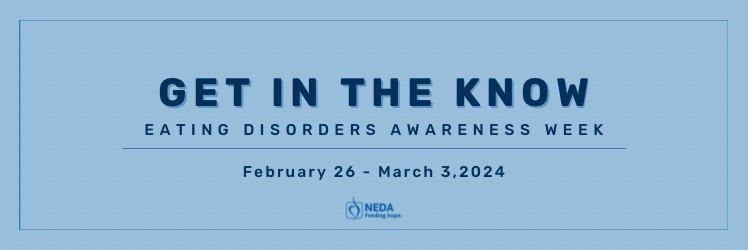I was born 3 months pre-mature, weighing 1 pound, 9 ounces. As a result of being born pre-maturely, I have mild cerebral palsy that affects how I walk. Growing up with a physical disability was very difficult; every day at school I was verbally and physically bullied. This bullying took a severe toll on my mental health and affected how I felt about myself. I was very depressed, I didn’t like myself, and I believed that no one else liked me. I didn’t really have any friends, just “acquaintances”; I felt very lonely and I often dreaded going to school.
When I was around 15, anorexia nervosa entered my life. I had very low self-esteem, and I started obsessing over my appearance and weight; I didn’t want to give anyone additional reasons to make fun of me. No one seemed to notice my eating disorder, even as it was progressively getting worse. I continued going through the motions every day, dreading school because I felt so incredibly alone and I had no one that I could call my friend. By age 16, the anorexia behaviors increased dramatically in both frequency and severity, so much so that my parents began to ask questions. Of course I insisted that I was fine, and at that point I probably really did think that I was fine.
The summer before my senior year of high school my health was in really bad shape and my thoughts about food and weight were constant and intrusive. I accepted that I needed help, and I agreed to enter an eating disorder treatment center. It was during treatment that I saw first-hand how the stigma of eating disorders and mental illness impacts men who enter treatment. As the only man in the center for the majority of my six-week stay, I felt ostracised and out of place. Following my release from the eating disorder treatment center, I continued seeing an outpatient dietitian and therapist for the next year or so, and I remained in recovery for about the next five years.
Unfortunately, in late 2011 I relapsed, and I ended up going back into an in-patient treatment center. This time I was in an even worse medical condition than when I first entered treatment, and I was put on a feeding tube for about two weeks. While I was once again outnumbered by women, there was one other guy this time, which made me feel a bit more comfortable and less out of place; I had someone who I could relate to a little bit more.
Flash-forward nearly five years: I am recovered, pursing a master’s degree to become a registered dietitian specializing in eating disorders. I want to use my experience for the better, to help others overcome this illness and get back to achieving their life goals. I have seen through my own experience with a dietitian how much good they do for people, and I want to help others to help themselves.
While bullying in middle school is not uncommon for many kids, the very fact that it is “common” does not make it okay. Bullying played a tremendous role in the decline of my self-esteem and self-worth, along with possibly being a significant factor in the onset of my eating disorder. I would like to ask that early on parents take the time to talk to their kids about interacting with others who are different from them, and teach them that mocking or making fun of others is not acceptable.
An eating disorder is scary, and recovery without professional assistance may not be possible for some people—but the stigma around male eating disorders may make men feel ashamed and reluctant to admit that they need help. This is not acceptable, and I am going to continue to do what I can to pave the way to change.
Ryan Branson is currently working towards becoming a registered dietitian within eating disorders. Born three months premature, he developed cerebral palsy, was subjected to severe bullying at a young age, and developed anorexia nervosa. During hospitalization he experienced the stigma of eating disorders being seen as a woman’s disease. Ryan wants to use his experience to work within a profession where he can offer support from a personal standpoint, while also helping to bring more awareness to male eating disorders.
This story is part of the Marginalized Voices Project. Learn more.






